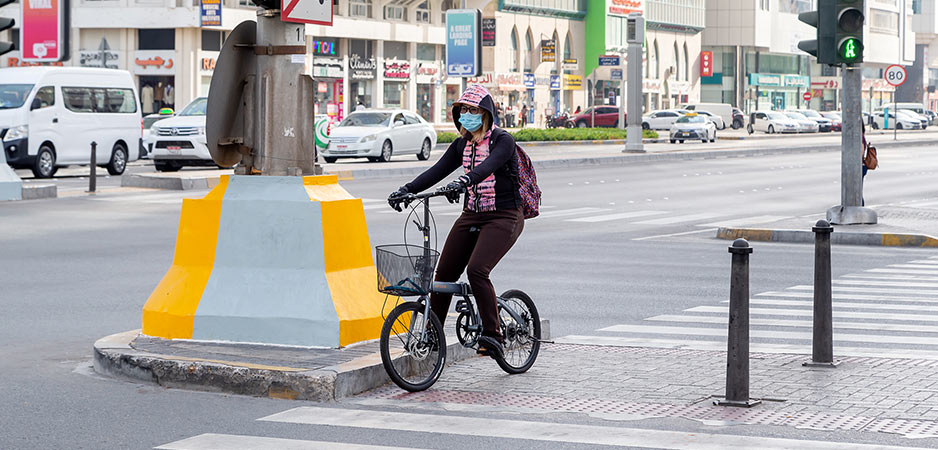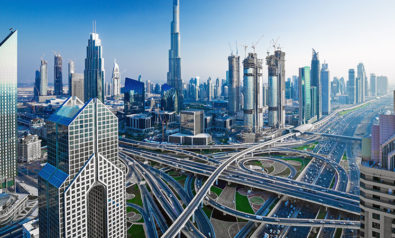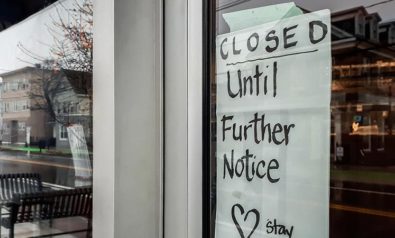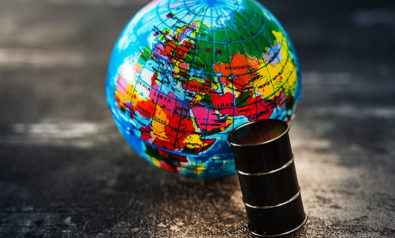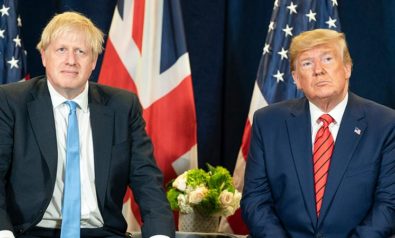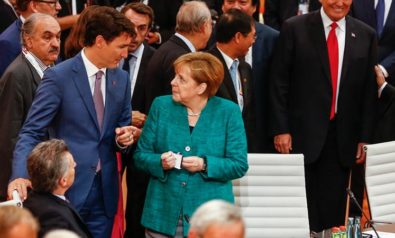Combating the coronavirus pandemic requires reliable data for projecting infection rates, the effectiveness of mitigation steps and casualties. There are many subsets to consider: where it is spreading, transmission sources, demographic profiles, assessment of mitigation and treatment options, and lessons learned. But all of this is tentative at best given that we are not even six months into its global impact.
After a delay of at least four to six weeks, the novel coronavirus known as COVID-19 was first reported in China and later to Iran, which also had a period of denial before reporting began. Since neither country is a paragon of statistical accuracy or openness, it is no wonder that many of the initial projections have been skewed by poor data using Chinese reports. With reliable inputs from South Korea, Taiwan and Europe, projections are now more reliable, yet local conditions are a major factor in gauging the impact of the pandemic in any specific country, the US included.
Will a Struggling Global Economy Survive the Coronavirus?
Local conditions are a significant issue in determining how countries in the Middle East and North Africa (MENA) will emerge from the effects of the virus in the medium and long term. There have been many analyses of likely outcomes for the Gulf, North Africa, Egypt and the overall region. Each raises important questions that reinforce the need to understand that recovery strategies will vary in four categories:
Group A: Energy producers with access to financial liquidity — Saudi Arabia, the United Arab Emirates, Kuwait and Qatar
Group B: Energy producers with limited access to financial liquidity — Algeria, Egypt and Iraq
Group C: Energy importers with access to liquidity — Jordan, Morocco and Tunisia
Group D: Energy producers or importers with credit, financing and liquidity issues — Bahrain, Oman, Sudan and Lebanon
The rest of the MENA countries are either failing or fragile states (Yemen, Libya and Syria) or have yet to publish useful data, which includes Somalia and Mauritania. The World Health Organization (WHO) reports both on a country-by-country and regional basis.
In this analysis, access to liquidity is from domestic and international sources. Morocco, for example, has tapped credit lines with the IMF and will receive support from the European Bank for Reconstruction and Development (EBRD)to provide a cushion for its declining exports, remittances and internal revenues to maintain public services and subsidies for food, fuel and pharmaceuticals. Kuwait, on the other hand, will rely on its own financial sector, private and government as the first line of support for funding needed to ramp up health services, protect companies and maintain government operations. Given its stability and conservative fiscal policies, it can also access external funding if needed.
Group A: The Gulf
Access to sources for stabilizing finances is only part of the need. In the Gulf Cooperation Council (GCC), much is being made of the three shocks to the oil producers: low prices, the pandemic and the recent price war between Saudi Arabia and Russia. The decline in oil prices has put the Vision 2030 projects in Saudi Arabia under scrutiny, and delays are being implemented to protect dwindling funds. A similar slowdown is happening in the UAE and Qatar.
Even if the latest OPEC agreement to cut oil production is honored, the participation of Mexico and the US is essential for price stabilization, which may not occur until the fourth quarter at the soonest given the production glut of the last month and declining global demand as people stay at home and planes are grounded. The GCC countries are already experiencing a contraction in the second quarter, tens of thousands of foreign workers have and are returning home, and currently upwards of an estimated $140 billion worth of stimulus funding to local companies will be needed to maintain even an acceptable level of domestic economic activity.
Recovery steps will be hampered by the length of the contraction, available supply chains that GCC countries rely on for imports, the stability of trade relations as countries take steps to protect their citizens’ access to needed goods and services, and rising budget deficits as energy exports provide the bulk of government revenues. Banks do not have the tools to support companies with loan refinancing mechanisms, dealing with distressed assets, financing small and medium-sized enterprises (SMEs), and similar means of propping up the private sector that directly or indirectly depends on government contractors and projects.
Finally, the GCC depends on foreign labor for construction, agriculture, health services, maintenance and blue-collar jobs producing items for export or local consumption. How it will be able to recall and recruit those who have left may require a rethink of such items as visa sponsor policies, unemployment insurance, pension benefits and health care for both domestic and foreign labor.
Group B: Algeria, Egypt and Iraq
One of the major differences between Groups A and B is the high level of domestic labor in the economy, which focuses on all of the factors mentioned previously — insurance, pension, health care. These are key factors in reviving the workforce. All of this will require funding that is in scarce supply in Algeria, Egypt and Iraq for many reasons, many of which are related to corruption, control of the economy by the military and elites, and in Iraq’s case, Iranian interventions into its economy and political decision-making.
In these countries, significant political issues are being faced as well. Popular unrest, terrorism, internal dissension and instability will make international lenders wary of investing. Recovery will take some degree of accommodation with the people, such as more economic and political openness, more job opportunities at all levels, better services and protection of civil and human rights, and an independent and transparent judiciary. All of this takes time. Accountability and transparency are not hallmarks of these regimes and continued delays cannot be blamed on the pandemic; in fact, it may be a mobilizing factor once restrictions on movement and assembly are lifted.
Group C: Tunisia, Morocco and Jordan
Tunisia, Morocco and Jordan face the same political challenges as Group B: political demonstrations are demanding an end to corruption, a more open economy and opportunities, and the provision of better services. The overriding issue as this point is how to fight the virus and build a foundation for resuscitating the economy for the citizens. All three countries face financial issues. They regularly run national deficits and are reliant on foreign assistance to survive and maintain services. External financing is imperative if they are to transition through combating the coronavirus to rebuilding their economies and reducing wealth disparities.
All are doing their best locally. Morocco has raised more than $3.5 billion for a fund started by King Mohammed VI to combat the virus. Its engineers and others have already invented a locally-manufactured ventilator that is now in production, and its textile factories are producing masks and gowns. In Tunisia, similar initiatives are ongoing to produce equipment and supplies to combat the virus, and Jordan is doing the same.
These nations are similarly challenged by the return of overseas workers who have been instrumental in providing significant remittances that are the second or third-largest component of their revenues. Internal issues such as the need for governmental reforms, corruption, lack of adequate public services, and human and civil rights deficiencies continue to hamper building trust that will be sorely tried in the coming months.
Group D: Bahrain, Oman, Sudan and Lebanon
It seems counterintuitive to put these countries in the same category, but they all have similar issues related to national budgets, domestic political stability and dependence of external sources of assistance for fighting the virus and rebuilding their economies. Bahrain will most likely be able to rely on Saudi Arabia for its financial needs, but that does not remove the lack of accommodation with the majority Shia population.
Oman has simply overspent its revenues too often in the past five years and will require extensive economic and political restructuring to appeal to international creditors and investors for its recovery. This is a real test for the new sultan, Haitham bin Tariq, which he is well equipped to manage.
Sudan will struggle under the impact of its feeble health services and recurring political instability while trying to effectively address the pandemic. Recovery will require retooling a government that for too long sustained elites to the detriment of the major populations. Although tribal identities remain strong and determinant, dealing successfully with the virus is a key opportunity for building trust, developing sound strategies and drawing investments from the international and expatriate communities.
Lebanon has the professional and technical personnel required to mitigate the worst impact of the pandemic. It is constrained by political elites who see the virus as an opportunity to disarm opposition to their decades of corrupt practices. While the quasi-technical government is taking mini-steps in the right direction, it is unable to command the power needed for medium and long-term solutions beginning with the financial sector. Lebanon has few if any sources of revenues by which to procure needed supplies to combat COVID-19 and its private sector is pitching in but at modest levels compared to the needs.
The intertwined interests of Iran, Syria, Hezbollah, the political elites and the demonstrators in Lebanon make this a perfect tsunami if steps are not taken concurrently to fight the pandemic and implement political and economic reforms. Otherwise, Lebanon will certainly become a failed state in the coming year.
While this may seem a dire analysis of the region, it reflects the reality that its weaknesses have been building for years. Without comprehensive, thorough and inclusive strategies that include economic initiatives that serve the countries in the long term, the Middle East and North Africa will continue to underperform. This is as true for the oil producers with cash on hand as for the resource-challenged nations that must address other causes of instability only highlighted by the pandemic.
The views expressed in this article are the author’s own and do not necessarily reflect Fair Observer’s editorial policy.
Support Fair Observer
We rely on your support for our independence, diversity and quality.
For more than 10 years, Fair Observer has been free, fair and independent. No billionaire owns us, no advertisers control us. We are a reader-supported nonprofit. Unlike many other publications, we keep our content free for readers regardless of where they live or whether they can afford to pay. We have no paywalls and no ads.
In the post-truth era of fake news, echo chambers and filter bubbles, we publish a plurality of perspectives from around the world. Anyone can publish with us, but everyone goes through a rigorous editorial process. So, you get fact-checked, well-reasoned content instead of noise.
We publish 2,500+ voices from 90+ countries. We also conduct education and training programs
on subjects ranging from digital media and journalism to writing and critical thinking. This
doesn’t come cheap. Servers, editors, trainers and web developers cost
money.
Please consider supporting us on a regular basis as a recurring donor or a
sustaining member.
Will you support FO’s journalism?
We rely on your support for our independence, diversity and quality.


